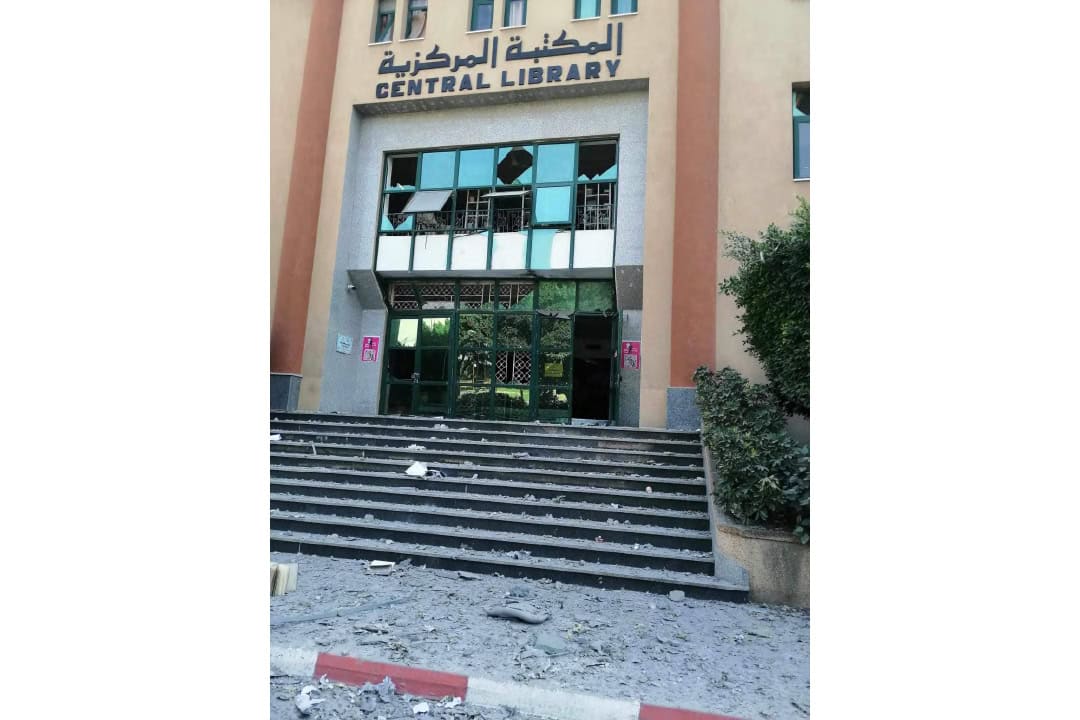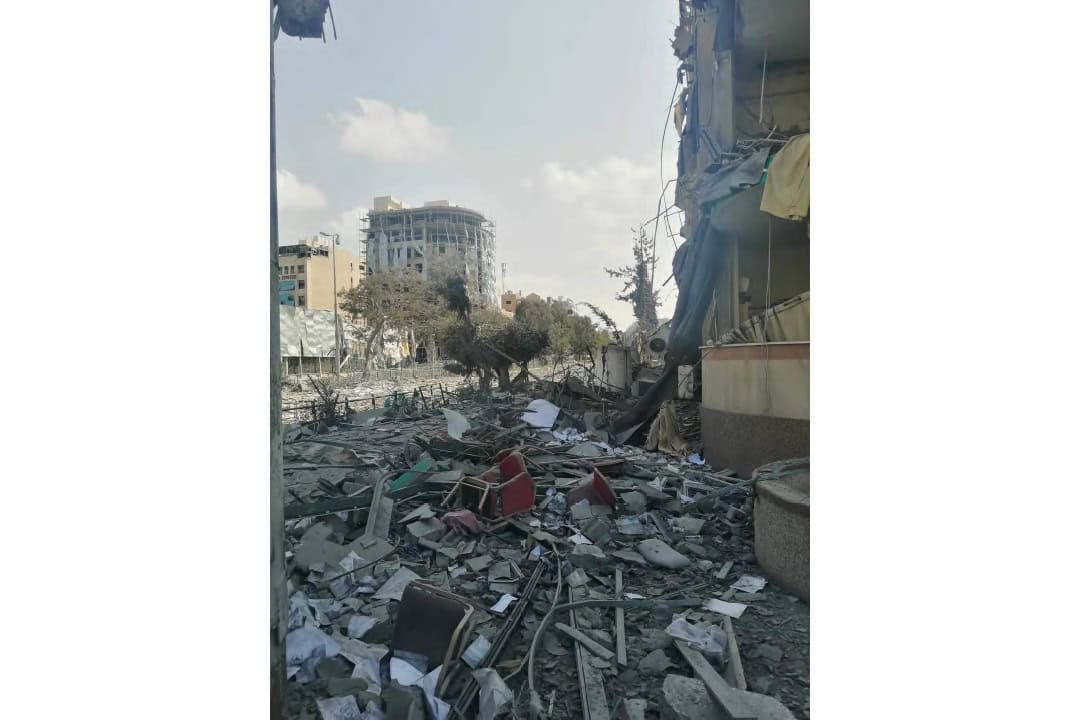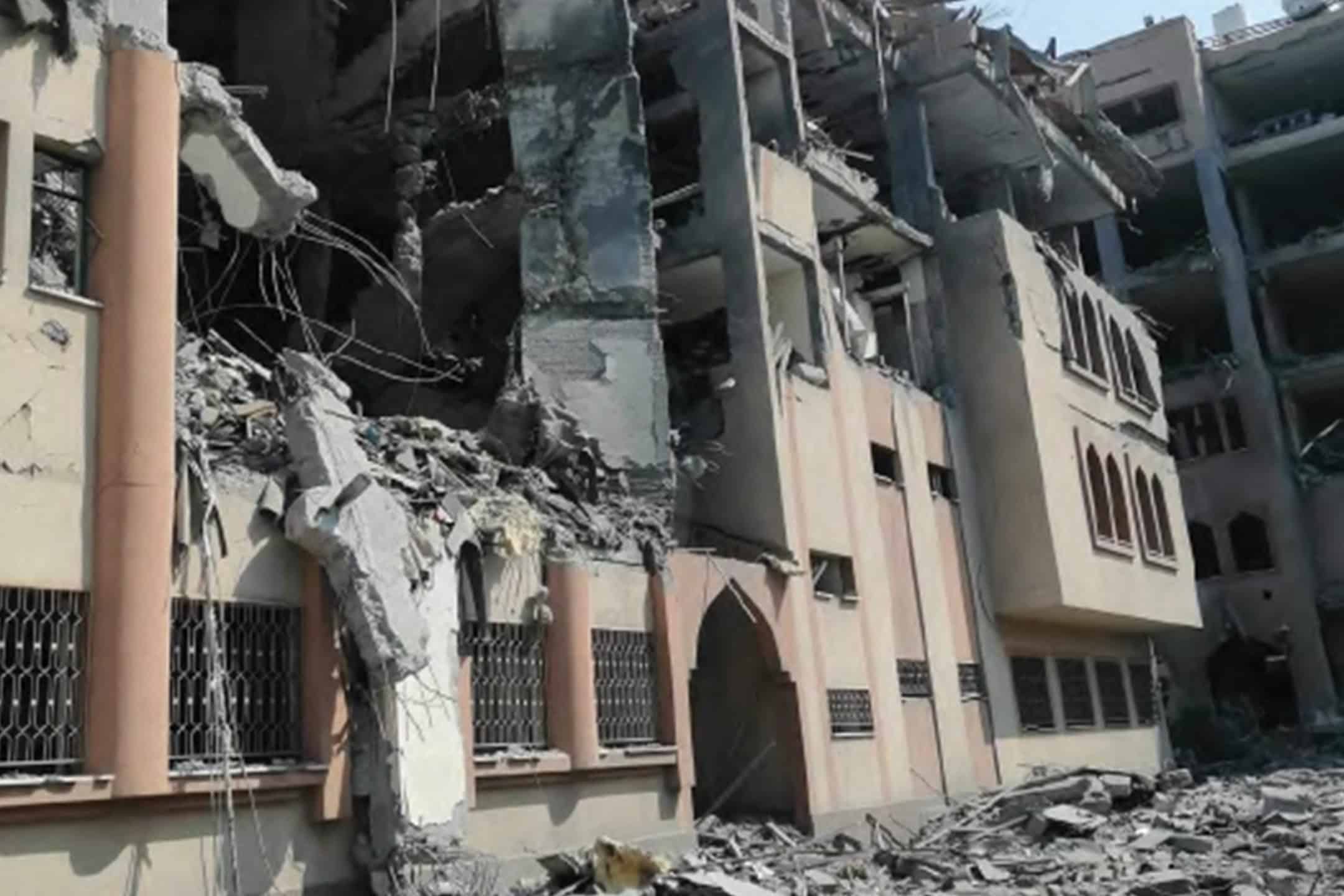Content warning: This article discusses death and the ongoing violence in Palestine.
A few years back, I celebrated the completion of my undergraduate studies with Professor Sofyan Taya. Taya was a renowned physicist and president of the Islamic University of Gaza, and was a visiting scholar at the University of Waterloo when we met. I shared my interest in pursuing a similar career: one day being a part of the esteemed enterprise of higher education.
In early December 2023, Israel murdered Taya and his family when an airstrike hit their home. Taya is just one of thousands of Palestinian students, staff, and faculty who have lost their lives amid the ongoing genocide in Gaza — a genocide that I believe is aided and abetted by Canadian academic institutions.
However, it is necessary to understand how North American universities partnering with Israeli academic institutions contributed to Israel’s scholasticide — the systemic obliteration of education — during this genocide of Palestinians.
An infographic by Palestine’s Ministry of Education and Higher Education highlights that Israeli attacks and occupations have targeted numerous universities in Gaza, resulting in the complete destruction of all universities in Gaza. The same infographic reveals that Israeli bombardment has murdered over 400 educational staff and denied more than 80,000 students access to their universities.
Since the 1980s, the University of Toronto has consistently opposed academic boycotts on the grounds of “promoting academic freedom” and “freedom of expression.” However, as a graduate student who cares deeply about my work, I often contemplate what it means to engage in an academic arena — particularly in the sciences — that expects political sterility. I believe that academic boycotts are a just strategy for achieving true academic freedom and expression, especially in response to a genocide.

Students should not accept normalizing our universities’ ties with complicit Israeli institutions. COURTESY OF DR. SOFYAN TAYA
Israeli universities are active agents of occupation
Universities in Israel have directly engaged in land theft. For instance, Ariel University is situated on an Israeli settlement in the West Bank. Such settlements are illegal under the Fourth Geneva Convention.
Additionally, Hebrew University’s Mount Scopus campus is built on land captured during the 1967 six-day war. Early Zionist leaders recognized the establishment of this university on a hill dominating the East Jerusalem skyline, as a symbol of unifying Jerusalem as the new “Jewish capital” of Israel.
The Mount Scopus campus has continued to expand into illegally seized land since its capture in 1967, encompassing over 90 per cent of the territory belonging to the Palestinian village, Issawiya.
Issawiya’s residents are surveilled by the Israeli National Police from lookouts on the Mount Scopus campus, endure daily raids, and encounter arbitrary physical obstacles such as the closure of their neighbourhood’s entrance at the university’s behest.
Furthermore, Israeli universities silence Palestinian voices. The Israeli police have arrested professors for opposing genocide and punished students for voicing support for the people of Gaza. During Israel’s military offensive on Gaza in 2008, Israeli military and security experts defended the bombing of the Islamic University of Gaza by citing that “universities historically have been breeding grounds for radical thought, free speech and protest.”
Israeli universities also collaborate directly with the Israeli military. Israeli academic institutions were founded in tandem with military industries — their mutual growth has established Israel as a perceived centre of military and technological mastery. The early Zionist militia established in 1920, the Haganah, developed bases at Hebrew University, the Technion Israel Institute of Technology, and the Weizmann Institute of Science to help displace Palestinians. This included the infamous Operation Cast Thy Bread, which used biological warfare to poison Palestinian water sources.
This mutually beneficial partnership between science and industry has produced some of Israel’s largest weapons companies today, including Rafael Advanced Defense Systems and Israeli Aerospace Industries.
Students should not accept normalizing our universities’ ties with complicit Israeli institutions through exchange programs or collaborations that claim to advance “scientific knowledge” and promote “economic growth.”

Boycotts aim to force institutions to rectify their complicity in the occupation. COURTESY OF DR. SOFYAN TAYA
The academy is not apolitical
So how can academic boycotts change the reality in Palestine? The pressure exerted by boycotts on Israeli academic institutions can extend to the Israeli state. Such boycotts aim to force institutions to clarify and rectify their complicity in the occupation. Israeli politicians themselves have recognized that these boycotts could pose a “first-rate strategic threat” to Israel.
When the American Studies Association unanimously voted to boycott Israeli institutions in 2013, it foregrounded the rights of the Palestinian students and scholars who have been systematically silenced. Joining this rising moral tide, the American Association of University Professors reevaluated its previous anti-boycott stance in August, and affirmed academic boycotts as a valuable tactic.
The global community of academics is not deaf; universities across the world are already participating in boycotts and divestment, and the University of Toronto must not fall behind.
As North American academics, we must reckon with the exceptional status of the State of Israel in our cultural, political — and by extension — academic climates. Our governments provide seemingly unconditional military and diplomatic support, irrespective of gross violations of humanitarian law and order.
Academic freedom does not exist in a vacuum. Our institutions of knowledge production have never existed as removed from historical or political contexts. This includes the material conditions under which universities were founded: the sources of funding, the land used to construct their buildings, and the public mission that universities champion.
Academic institutions have a prerogative to advance society through education, but such social development must not come at the expense of international law which our countries have signed onto, specifically the genocide convention.
I therefore call upon the members of my university community — students, staff, and faculty — to reflect on the implications of ignoring the academic freedom of our Palestinian colleagues, while privileging the academic freedom of institutions complicit in genocide and occupation.
Let us remain encouraged that even under the rubble and fire, the dreaming spires of education will never be destroyed.
Yousuf Ramahi is a second-year PhD student studying computational biophysics. He is a Graduate Studies Columnist for The Varsity’s Opinion section.



No comments to display.